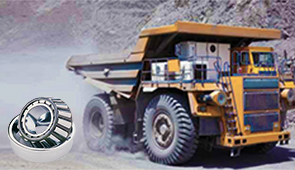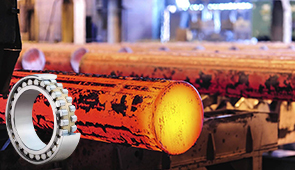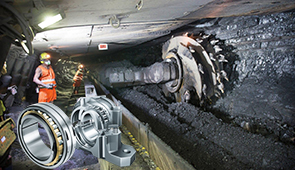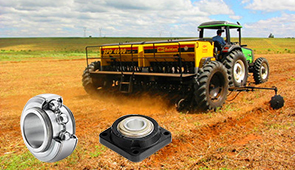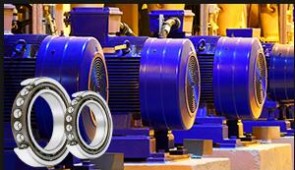|
 |
 |
 |
 |
|
Plain shaft with bearing on an adapter sleeve |
Stepped shaft with bearing on an adapter sleeve |
Stepped shaft with bearing on a withdrawal sleeve |
Stepped shaft with bearing on a cylindrical seat |
| |
| Shaft |
- Machining not required, drawn round bars (h9 or better) can be used
- Maximum shaft strength (no shoulders or undercuts)
|
- Machining required, typically two steps
- Shaft strength weakened by shoulders
|
- Machining required, typically two steps
- Shaft strength weakened by shoulders
|
- Machining required, typically two steps
- Shaft strength weakened by shoulders
- Largest shaft diameter for a given bearing size
|
| |
| Bearing |
- Bearing can be mounted at any position on the shaft
- Internal clearance changes during mounting (proper drive-up required)
- Axial load carrying capacity limited by the adapter sleeve
|
- Bearing position determined accurately by the stepped ring
- Internal clearance changes during mounting (proper drive-up required)
- Axial load carrying capacity limited by the shaft sleeve or adapter sleeve in one direction and by the bearing and housing in the other direction
|
- Bearing position determined accurately by the shaft shoulder
- Internal clearance changes during mounting (proper drive-up required)
- Axial load carrying capacity limited by the shaft sleeve or withdrawal sleeve in one direction and by the bearing and housing in the other direction
|
- Bearing position determined accurately by the shaft shoulder
- Internal clearance determined by the shaft seat tolerance
- Axial load carrying capacity limited by the bearing and housing
|
| |
| Mounting and dismounting |
- 40% less mounting force required compared to other sleeve mounted arrangements as friction only occurs between two mating surfaces
|
- Other components on the shaft can be located axially against the bearing on its sleeve via spacer sleeves
- Easy dismounting as the bearing inner ring is in contact with the stepped ring
|
- Other components on the shaft can be located axially against the bearing on its sleeve via spacer sleeves
- Easy dismounting with a withdrawal sleeve and hydraulic nut
|
- Other components can be located axially against the bearing via spacer sleeves
- Suitable when large numbers of bearings have to be mounted
- Simple axial locating by shaft nut
|
| |
| Applications |
- Long shafts where more than two bearings are required for support
- When the final position of the bearing cannot be accurately determined prior to mounting
- When machine components are mounted using clamping or tensioning devices so that the shaft does not need to be machined
|
- Support of shaft ends
- Frequent mounting and dismounting
|
- Support of shaft ends
- Frequent mounting and dismounting
|
- Support of shaft ends
- Frequent mounting and dismounting
- Suitable for shock loads or where higher speeds or higher precision are required
|













